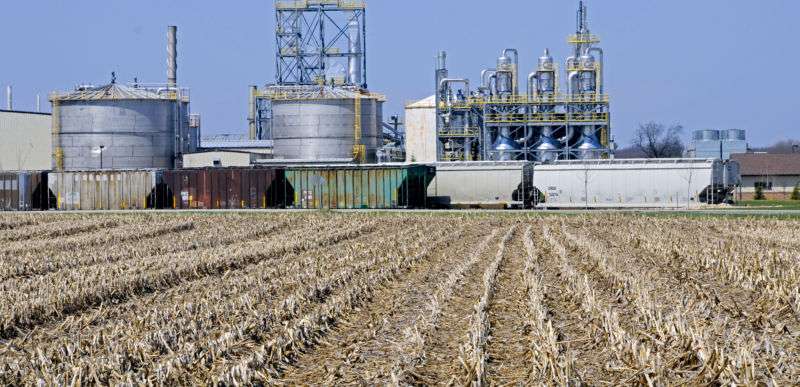
US appeals court says California can set its own Low Carbon Fuel Standard

Late last week, the US Court of Appeals for the 9th Circuit published an opinion (PDF) stating that California’s regulation of fuel sales based on a lifecycle analysis of carbon emissions did not violate federal commerce rules.
Since 2011, California has had a Low Carbon Fuel Standard (LCFS) program, which requires fuel sellers to reduce their fuel’s carbon intensity by certain deadlines. If oil, ethanol, or other fuel sellers can’t meet those deadlines, they can buy credits from companies that have complied with the standard.
California measures “fuel intensity” over the lifecycle of the fuel, so oil extracted from tar sands (which might require a lot of processing) would be penalized more than lighter oil that requires minimal processing. Ethanol made with coal would struggle to meet its carbon intensity goals more than ethanol made from gas.
Plaintiffs representing the ethanol and oil industries have challenged these rules in the court system. Most recently, they challenged California’s 2015 version of the rules. (In September 2018, the state’s Air Resources Board announced new amendments to the Low Carbon Fuel Standard rules, but those are not discussed in the 9th Circuit’s most recent opinion.)
A question of geography?
The plaintiffs argued that California is violating federal commerce rules by penalizing out-of-state fuels more than in-state fuels. They argue that this is by virtue of the fact that out-of-state fuels happen to be more carbon-intense. (In one example, synthesized ethanol from out-of-state is more often made with coal, as opposed to in-state ethanol which can be made with natural gas.)
But the 9th Circuit Court of Appeals was not inclined to agree with the plaintiffs, and it declined to overturn the lower court’s ruling keeping California’s Low Carbon Fuel Standard in place.
The opinion published by the panel was notably blunt in its assessment of how climate issues influence commerce rules. It wrote that California can make rules restricting the sale of goods (like carbon-intense fossil fuels) if those goods affect the health of the state’s citizens.
The opinion noted:
The California legislature is rightly concerned with the health and welfare of humans living in the State of California… These persons may be subjected, for example, to crumbling or swamped coastlines, rising water, or more intense forest fires caused by higher temperatures and related droughts, all of which many in the scientific communities believe are caused or intensified by the volume of greenhouse gas emissions.
The opinion added that both in-state and out-of-state fuels are subject to the same rules and the LCFS “helps California and its citizens by ensuring that out-of-state fuels do not benefit in Californian markets by ‘cutting corners’ and not being subject to California’s regulations on the resulting greenhouse gases.”
“It seems clear beyond dispute that potential climate change poses one of the most difficult challenges facing all civilizations worldwide for the 21st century,” the panel of judges wrote. “By recognizing emissions that occur throughout the lifecycle of different fuels, California has offered a potential solution to the perverse incentives that would otherwise undermine any attempt to assess and regulate the carbon impact of different fuels.”
The opinion continued:
The Constitution does not require California to shut its eyes to the fact that some ethanol is produced with coal and other ethanol is produced with natural gas because these kinds of energy production are not evenly dispersed across the country or because other states have not chosen to regulate the production of greenhouse gases…. If the Midwest were to undergo a green revolution in its energy production, the LCFS would act as a competitive drag on California energy producers.
The opinion upholds California’s regulation of fuels sold in the state, but it doesn’t have any effect on vehicle fuel economy. California’s Air Resources Board has long been allowed to set its own fuel economy standards for vehicles, but the Trump administration’s Environmental Protection Agency (EPA) has threatened legal action to take this power away from the state. Currently, the EPA is trying to rewrite fuel economy standards to freeze them in place rather than making them more stringent in subsequent years, as originally planned.




